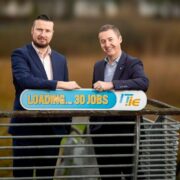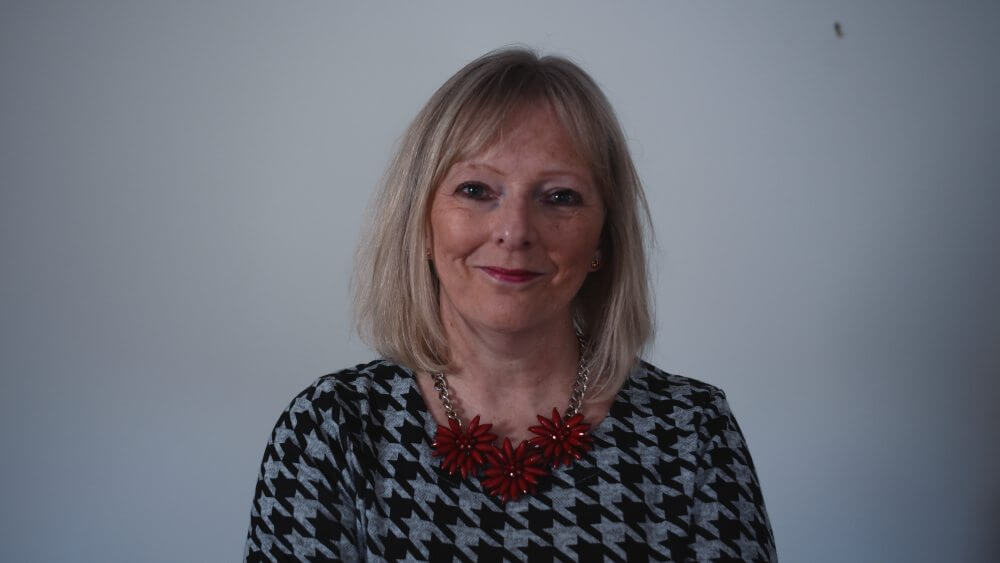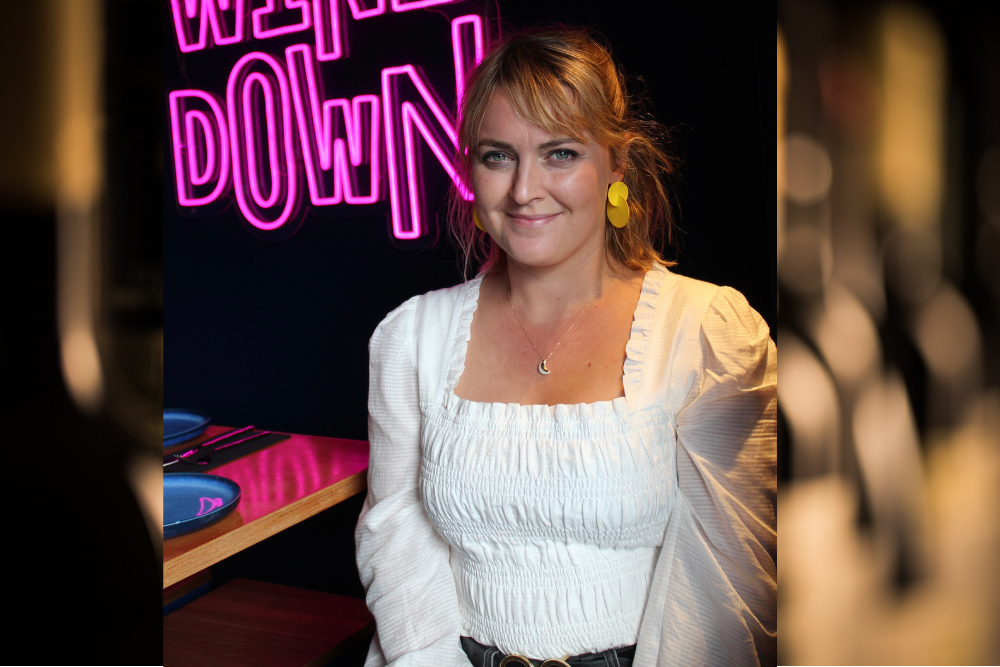Emer Conroy, director of Sligo-headquartered LotusWorks, shares her life and business lessons.
Globally trading, Irish-owned company LotusWorks is one of Ireland’s largest and longest-established engineering services outsourcing companies.
It specialises in managing scopes of work within global manufacturing facilities. It has operations in Ireland and the US, partnering with the world’s leading manufacturers across the semiconductor, pharmaceutical, medical device and data centre sectors.
“We care, understand and enjoy success, so we choose partners who are ambitious and committed to making the world a little bit better daily”
The company recently announced it had doubled its turnover since a management buyout (MBO) of the business five years ago and is projecting €106m turnover in its current financial year (ending February 29, 2024).
The company will add 100 new jobs globally over the next 18 months and has credited its current high-performing team as being the driving force behind its significant growth.
Tell us about your background, what journey did you take to arrive at where you are?
I had no ambition or burning desire starting out in life to be part of business ownership nor did I see myself being part of a leadership team to be honest.
I have an outgoing personality and I love people. I always liked working with others; working alone bores me. While I admire individual strength and ability, the fun in being part of a team committed to a shared goal really excites me.
After completing my degree in UCD, I took a summer job in RTÉ for experience as I planned to complete a business course in the autumn. I worked in the RTÉ commercial division, and I was very lucky to be managed by an incredibly creative, people-focused, ambitious female manager.
Within three months of being there, she encouraged me to apply for a full-time role and I got the job. I was part of a strong committed team with a leader who was fair and well respected. I learned a lot about business, and I was encouraged to develop my skills and learning.
What need are you meeting?
LotusWorks provides outsourced engineering services to major manufacturing companies. Our clients are our partners; we are interdependent, and I enjoy gaining an understanding of their needs so we can win together. Our clients need the expertise we have, so they can focus on their core manufacturing goals. We are providing them with peace of mind that their product is being compliantly produced while they pursue their goals.
The companies we have the pleasure of collaborating with have breathtaking ambition and are changing the world through medical equipment innovation, technological advancement and life-changing new drugs.
We care, understand and enjoy success, so we choose partners who are ambitious and committed to making the world a little bit better daily.
“I enjoy initiating action and making gut-instinct decisions”
How did you fund and start the business and what are your growth plans?
I am part of a management team that bought the LotusWorks business in October 2018 in a MBO. We have an aggressive organic growth strategy in place, which includes new client acquisition and growing the business in new locations in both Europe and the US.
What are your key skills and qualities that set you apart?
I tend to be enthusiastic and outgoing and have a collaborative and optimistic outlook, so I genuinely enjoy being around other people. I’m probably drawn to projects where I can work collaboratively, and I tend to get bored with routine – the preference is to have a variety of tasks on my plate at any given time. I’ve been told I have a quick pace and the ability to change direction promptly. I enjoy initiating action and making gut-instinct decisions. Knowing not just how and what to do, but knowing why, is obvious to me. I can see significance in work and can communicate that to teams in a transparent manner.
“Our business would not be successful if perfectionism was embraced in team culture. Nobody gets everything right the first time”
What (or whom) has helped you most along the way? Who was your greatest mentor/inspiration?
My parents provided relentless support and instilled the logic that “anything worth having is not easily got”. They made plans and worked as a team and in partnership. They respected each other’s abilities and were fully committed to ensuring my siblings and I, had the life skills to cope and persevere.
My parents are also my greatest mentors and inspiration. My father took measured risks and was not afraid of any challenge workwise. My mother is hardworking and determined, so as a family we understood early in life that you learn from failure, and it’s our perseverance and ability to be resilient that will allow us to be successful.
The other people who now provide daily support, encouragement and reassurance include my husband and my business partners; they provide encouragement and motivation especially when things are not going to plan, and my self-motivation and belief is dipping. All said, and on reflection, I am lucky to have been surrounded in my early life and today by people who see the bigger picture.
“If you believe and keep working on achieving, it happens. Believe and then take small, planned actions to get where you need to be”
What was the greatest piece of business advice you ever received?
Early in my career I was told to “stop pursuing perfection – it’s a myth”.
It has stuck with me, and I have applied the advice in both my personal and professional life and shared it with other perfectionists I’ve met in my working life. If I recognise the trait at work, I actively coach colleagues away from it.
Our business would not be successful if perfectionism was embraced in team culture. Nobody gets everything right the first time. In fact, most successful leaders have failures behind them. Every misstep is a lesson learned, and it’s these lessons that ultimately lead to success.
Focus should be on progress and the process, not perfection, aiming to do your best while understanding that you may not achieve it, makes us happier and more successful.
Although innately perfection will always be a characteristic of mine, I can overcome my tendency toward perfectionism by setting realistic goals and taking efficient action.
What qualities can mark the difference between success or failure in life or business?
Not quitting or giving up and the ability to learn from mistakes. If you believe and keep working on achieving, it happens. Believe and then take small, planned actions to get where you need to be. You know more than you think, so it’s about trusting yourself. Failures are just setback experiences on the journey to succeed.
What was the most challenging aspect of growing the business?
Critical, in my opinion, to growing the business is learning to listen to others and take advice. As we tackle new opportunities for the business, someone who has experience to match the opportunity is best placed to deliver it. Trusting and listening closely to the management team and not controlling all aspects of the business is an adjustment, but it has allowed us to grow steadily in the past three years.
How did you navigate your business through the pandemic and what lessons did you learn?
We pretty much immediately switched to a one-day-at-a-time approach from March 2020 through to Spring 2021.
We’ve a long-standing management team and good comradery in the business so daily management update meetings were focused on prioritising the health and well being of our workforce .We created a central and clear list of priorities, and they were implemented with a high degree of local manager autonomy and client interactions.
There was a dramatic increase in the internal communications frequency within the business and with our clients. Consistent reassurance messages on what changes we were implementing as a result of COVID, coupled with demonstrating empathy for the genuine personal concerns of employees, were suddenly consuming the workday.
We learned how vital it was to steer away from the negativity and focus communications on small positive things, to share some funny experiences, build interactions to ensure everyone laughed a little each day, despite the gloom and worry that COVID-19 was causing.
If you were to do it all over again, what would you do differently?
Probably two things spring to mind.
The first relates to leadership. I moved from being a manager to being one of the owners/directors pretty much overnight when we successfully completed the MBO process in 2018. My new leadership role was an opportunity to fix, build, or improve the team culture. Business operational challenges can dominate leadership time. If I was to do something different, it is to prioritise getting to know the team and how they work. Established habits and norms of behaviour among team members has a big impact on performance. I would spend a large amount of my time weekly on getting to know and understand the team responsible for business operational performance to support their success and careers.
The second thing I would do differently is to make hard decisions sooner, see risk as potential opportunity. Consider and then act. I have been guilty in my early career of not acting quickly, despite identifying the change that needed to happen. I was in the bad habit of not sharing concerns or thoughts and perhaps not trusting my instincts.
“Be yourself, trust yourself, ask questions so you learn quickly. Develop your listening skills and think on what other team members say and contribute”
Who inspires you in business today?
People I work closely with who are part of our business inspire me daily. I’ve two business partners and both possess skills that I lack and admire. Their commitment, passion and high tolerance for risk is inspiring.
I’ve also met a lot of people within our client organisations and in organisations that support us that really inspire me. I do admire others in business, but if I don’t know them personally, they don’t inspire me. I need to work with or know people for them to inspire me.
What advice/guidance do you give new hires and how do you nurture talent in your organisation?
Be yourself, trust yourself, ask questions so you learn quickly. Develop your listening skills and think on what other team members say and contribute. We help all talent by providing access to more experienced talent by bringing teams together to work on solutions. We’re informal in our communications but have also built formal processes within the business to ensure all our talent receive feedback, support and encouragement in a consistent manner throughout their time in the business.
What business books do you read or would recommend?
I don’t spend a lot of time reading business books to be honest. I enjoyed and learned a lot of applicable information from Verne Harnish Scaling Up and from Simon Sinek’s Leaders Eat Last.
What technologies/tools do you use personally to keep you on track?
My Outlook calendar for both personal and professional milestones. I use Notes on my iPhone also for planning and tracking.
What social media platforms do you prefer and why?
I am not a huge social media user, but I like Instagram. It has more visual content than the other platforms. Maybe it’s my age profile but a lot of the people I know are users, so I get family and friends updates, and it also presents the news content I enjoy.
Finally, if you had advice for your 21-year-old self – knowing what you know now – what would it be?
Surround myself with people who are making plans, goal-setting and focusing on achieving their goals. I would also stop comparing myself to where I am today versus where other people are. I have my own ability and goals – get on with them. Avoid, or at least minimise, interactions with those in my circle with closed mindsets and move to spending more time with proactive, goal-setting friends and colleagues.





